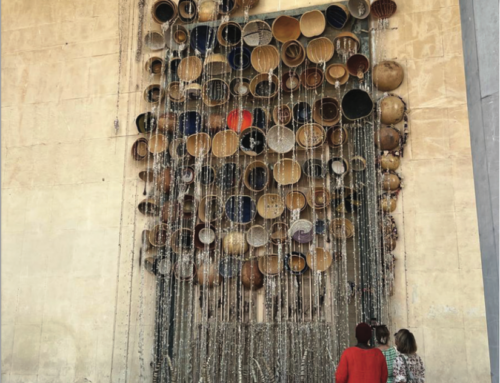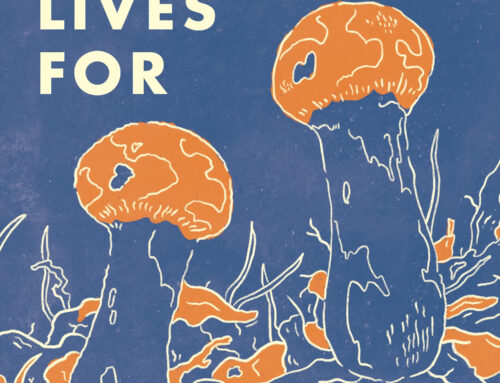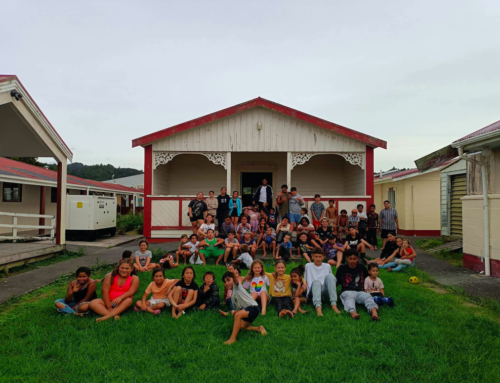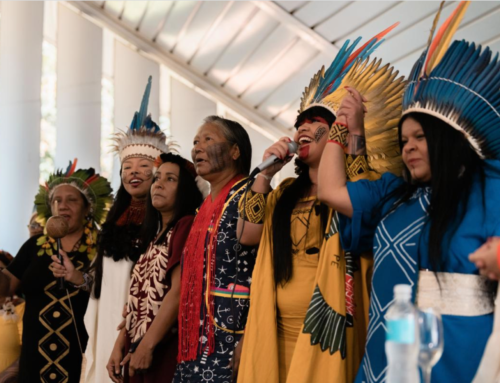Leading up to the 50th birthday of American Ethnologist, AES editorial interns Ipsita Dey and Alexandra Dantzer have a conversation with the current editors of the journal, Susanna Trnka, Jesse Hession Grayman, and Lisa Wynn. Editors shape not only the voice of the journal, but the discipline itself. In this interview, Ipsita and Alexandra ask the editors which disciplinary conversations and debates they are eager to amplify, what kinds of work might be suitable to submit to AE, and how early career scholars can find the ideal journal for their scholarly projects.

Photo by Nik on Unsplash.
Ipsita Dey: Hello, and welcome. My name is Ipsita Dey and I am a PhD Candidate in Anthroplogy at Princeton University. I’m here with Alexandra Dantzer, a PhD Candidate in Anthropology at the University of Pittsburgh. Alex and I are currently serving as Editorial Interns with AES (the American Ethnological Society), and we have the pleasure of speaking today with the current editorial team of American Ethnologist, comprised of Susanna Trnka, Lisa Wynn, and Jesse Hession Grayman. Could we begin by having each of you introduce yourself and share how you came to be part of the team?
Susanna Trnka: I’m Professor of Social Anthropology at the University of Auckland in New Zealand. I’ve always been a very keen reader of American Ethnologist. I never imagined I’d take on the role of being its Editor-in-Chief for four years, but I’m absolutely delighted to be doing it.
Lisa Wynn: I am Lisa Wynn, though I publish as LL Wynn. I’m a Professor of Anthropology at Macquarie University in Sydney, Australia. Susanna heard the call for editors at American Ethnologist and she raised the possibility of me joining as an Associate Editor on an editorial team. And while I found it really daunting at first, I also thought it was an exciting idea and an excellent opportunity to read a whole lot of things outside of my area.
Jesse Grayman: I’m also at the University of Auckland. I’m a Senior Lecturer in Development Studies, but my PhD is in Social and Medical Anthropology. I do fieldwork in Indonesia, focusing on humanitarian interventions, global health, and rural development issues. When Susanna said, we may have this opportunity to put in a bid as the new editorial team for American Ethnologist, I jumped out of my chair; we all love this journal. I’m often turning to AE when I’m looking for articles to assign my students, and I’ve often turned back to AE articles when I’m looking for references in my own work, or for concise summaries of important innovations in the literature, in theory, and so on.
Lisa Wynn: We’re all originally from the United States, but we also all have dual citizenship in these other countries here in the Pacific. And we also were really excited by the opportunity to continue a trend over the past decade or so at American Ethnologist of having international editors. The name of the journal tells us where it originates, but what it doesn’t signal is how very international it is. It was very important for Jesse, Susanna, and I to make sure our editorial board was international. The journal is not just international in the sense that anthropologists learn from people all over the world, but that anthropological knowledge production happens all over the world.
Susanna Trnka: As part of our tenure, we are trying to highlight recent debates—such as decolonizing anthropology—and how they are playing out in different parts of the world. By being outside of the US, we are able to bring some of the sensibility of how decolonization, amongst other things, has been discussed and enacted differently around the globe.
Alexandra Dantzer: Thank you. I think this is a great segue into some of the questions we have for you. First off, what kind of scholarship and citation practices would you like to see in AE in the future?
Susanna Trnka: I definitely see us as building on what past editors have done. A graduate student of mine, Natalie Wood, did an independent study on AE. She read 48 years’ worth of issues. She got a sense of all the different pieces and she tried to plot out, editor by editor, what each emphasized. What kinds of pieces were they publishing? It was really interesting to map how the journal started with very structuralist pieces, moving then to an emphasis on politics and gender, to political economy. It was an exercise in understanding shifts in the discipline over time and how editors might have had a voice in shaping them.
But in general, the focus on ethnography and theory, however basic it sounds, is the trademark of the journal. We are interested in how ethnography drives theory. In other words, you should be able to look at a piece and think: If I strip out all the ethnography, the theory isn’t quite working. And similarly, if I took out the theoretical, conceptual work and just had the story, I don’t quite know what to make of this. So, we’re looking for those pieces where the theory and ethnography are intertwined, but each one is moving the other forward.
Jesse Grayman: I’m always talking about how theory requires ethnography, because the ethnography needs to push the theory in new and innovative directions. And how important it is to pay attention to the interplay between the two. That’s at the heart of this journal.
Ipsita Dey: I think your answers thus far have touched a little bit on this topic, but to make it even more explicit: How do you imagine your roles as editors in shaping a kind of ethics of ethnography for the future? What kind(s) of anthropology would you like to see more of in AE? And how does this vision inform your practice as an editorial team?
Lisa Wynn: We’ve been thinking a lot about the ethics of who speaks—and who speaks for whom, under what context—in our recent forum on decolonizing the discipline, and in our discussions about citation practices.
Susanna Trnka: AE’s 50th birthday is upcoming in 2024. The first issue of the year is going to be a special birthday celebration. We have 25 contributions for this occasion, all reflecting on the question of “What good is anthropology?” from a variety of stances. We explore questions of ethics, methods, ethnography, applied anthropology, and how to make anthropological knowledge practically relevant in the world. What is the point of academics? What is the point of academic writing? How can our research practices inform knowledge production while at the same time being engaged in improving and being generative in people’s lives?
Lisa Wynn: For example, the issue includes a piece from the Patchwork Ethnography Collective, from Chika Watanabe and Gökçe Günel, about what anthropological research methods look like when we’re not stuck in this colonial legacy of an anthropologist who has an infinite amount of time to do fieldwork, and when their participants are equally pressed for time.
Also, what’s really interesting is that a lot of different authors are rethinking what it means nowadays to do ethnography in contexts where our research participants might be more powerful than us, where they don’t have time to talk to us infinitely, and where we don’t hang out in their homes. Conversely, we ethnographers might not have the physical capabilities to do the kind of fieldwork that was imagined as the quintessential core methodological approach to fieldwork 50 years ago.
Alexandra Dantzer: I’d like to circle back to Lisa’s mention of citation practices. When you receive a paper and look at the references, what do you hope to see? What conversations do you want to push forward by selecting particular articles, including their bibliographies?
Susanna Trnka: I have to say this question about citation comes up repeatedly. The basics are for reviewers to note that an author hasn’t cited so and so, hasn’t looked at the literature on this, or seems to have missed about 10 years of work on X, Y, and Z. But we also ask questions like, well, where are the Indigenous scholars working in the area that you’re writing about? Why is it that you’re not engaging in the work of people who are based in the country that you’re working in? It is something that we as editors are constantly thinking about: With whom are you putting your work into conversation, and why? Why are you choosing these conversations? And what other conversations could you be involved in?
Lisa Wynn: Susanna mentioned “conversations,” and that’s key. A lot of more junior scholars and early career researchers think of citation practices in terms of laundry lists of people who you have to cite so you don’t get in trouble. On the contrary, we want you to be in conversation with particular people who have something to say that’s relevant to your ethnographic material. And we don’t want just a whole bunch of citations at the end of every sentence showing that you have read so and so.
Ipsita Dey: I would like to end with a request for advice geared towards scholars who are interested in publishing in AE. What would you like to see from their initial manuscripts for submission? What might help them in the publication process?
Susanna Trnka: When writing, think about which journal your work is in conversation with, and the kinds of pieces that they publish. Maybe you have a fantastic manuscript, but it’s more theoretical and does not have the ethnography needed for AE. Or maybe it’s very, very ethnographic—beautifully rich with fieldwork vignettes—but it’s not really moving the theory anywhere. That, too, is just not a piece that’s meant for AE. So, take a look at the piece, take a look at what we’ve been publishing, and think to yourself, is this the right venue?
Another way people sometimes get tripped up is that they’ve got an excellent analysis of a very narrow question or a very narrow set of issues, but it’s not going to attract a broad range of readers. And AE has a very broad readership.
Finally, don’t take it personally if your article is not accepted. Sometimes we make decisions based on how often we can cover a specific topic. From a journal perspective, we’re trying to speak to a broad range of readers and we have to make decisions as to how to present a diverse collection of articles that a broad array of people will want to read.
Jesse Grayman: I’ll echo what Susanna said. It’s really important for early career scholars to get to know the personalities of the different journals. There’s a list of top anthropology journals, and you can figure out where your work fits by: reading the journal and paying attention to style, presentation, and citation practices; good mentorship; or peer review that you receive when your paper gets accepted/rejected. This is all part of the learning curve for an early career scholar when they’re testing the waters with different journals.
Ipsita Dey: Thank you. Is there anything you feel has been left unsaid? Or anything you’d like to make sure that readers get a chance to hear from the editors?
Susanna Trnka: Just that we’re really excited about the 50th birthday of AE and the 50th birthday forum! What good is anthropology? Where should anthropology be heading? We’ve enjoyed thinking through these questions for this occasion. We’re hoping to really spark a set of conversations—in academic circles, and also in the classroom—with the articles in this forum.
Ultimately the collection attempts to answer the question of what are we doing here in anthropology, and why it is meaningful. Having authors who are really passionate about the very different things they do and the very different kinds of concerns they have—and all of them use anthropology to try and articulate and understand these—it’s really fascinating and inspiring to read.
Cite As: Dey, Ipsita, Alexandra Dantzer, Susanna Trnka, Jesse Hession Grayman, and Lisa Wynn. 2024. “American Ethnologist at 50: An Interview with the AE Editorial Team” American Ethnologist website, 8 February 2024 [https://americanethnologist.org/online-content/interviews/american-ethnologist-at-50]




